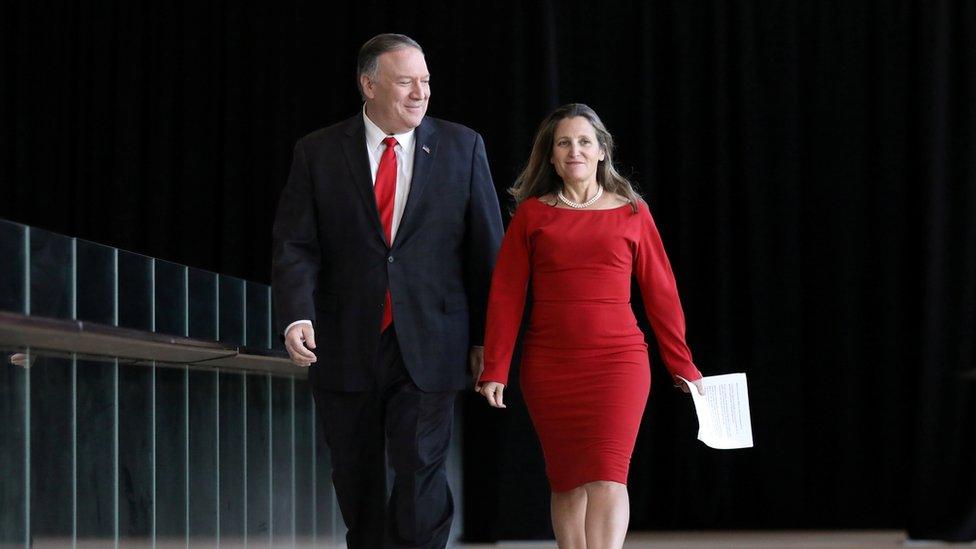Two Canadians held for a year by China remain 'resilient'
- Published
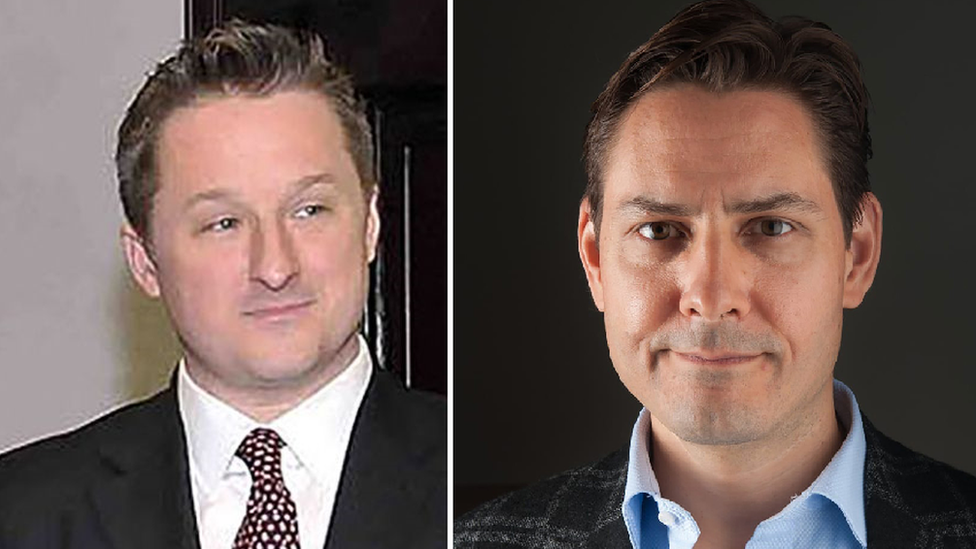
Michael Spavor (L) and Michael Kovrig have been held since December
Friends and colleagues of two Canadians arrested by China are speaking out on the anniversary of the pair's detention.
Michael Kovrig, a former diplomat, and Michael Spavor, a businessman, were both detained on 10 December 2018.
China has accused the pair of espionage.
The move by Beijing is widely viewed as "hostage diplomacy" - a tactic to put the pressure on Canada to release Huawei executive Meng Wanzhou.
Beijing denies the men's cases are related to Ms Meng's arrest in Canada last year, but supporters say the two are being used as pawns in a larger political dispute.
The Canadian government says neither man has had access to a lawyer and have been denied contact with their families and loved ones.
"Our heart goes out to the two Canadians detained in China unjustly," said Canadian Prime Minister Justin Trudeau on Monday.
What are supporters of the two men saying?
"It's difficult to even describe this cloud, or the weight that hangs over an organisation when your colleague, your friend has been in a Chinese prison for a year," Brittany Brown, with the International Crisis Group, Mr Kovrig's employer, told the BBC.
"Not a day goes by that someone in Crisis Group is doing something, engaging with someone, talking with someone, pushing certain points behind the scenes to try and support the Canadian [government] efforts," she said.
Current and past presidents from the NGO published an open letter last week calling his detention "unjust and inhumane".
Guy Saint-Jacques, a former Canadian ambassador to Beijing, said that during a recent consular visit, Mr Kovrig asked officials: "When are you going to get me out of this mess?"
"You need to have some hope," says Mr Saint-Jacques, who once worked with the ex-diplomat.
Robert Malley, Mr Kovrig's boss, told the Canadian Broadcasting Corporation his colleague was resilient, external and has maintained his "sense of humour and a sense of perspective".
Mr Spavor also has a network of supporters who are doing what they can to help secure his release, says friend Brian Gold.
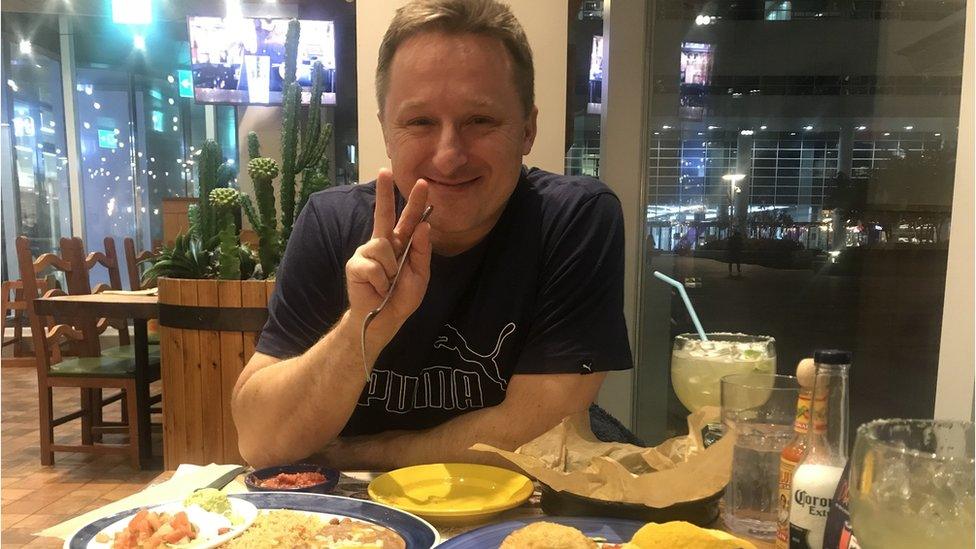
Friends describe Michael Spavor as an "earnest, genuine, and impossibly fun person".
They have launched an online fundraiser to help the businessman get back on his feet once he is released, and Mr Gold says knowing he has support from outside is lifting his spirits.
"We're just very proud of how resilient he is being under this situation," he says. "It adds to my points of admiration for him, in the way that he's dealing with this."
What has Canada done to secure their release?
Canada has repeatedly called the detention of the two men "arbitrary".
In September, Mr Trudeau accused Beijing of using "pressure tactics" to try to secure the release of Ms Meng and said that China is "using arbitrary detention as a tool to achieve political goals".
The Canadian government has sought the support of allies such as Britain, France, Germany and the US to pressure China for the pair's release.
New foreign affairs minister, Francois-Philippe Champagne, has told his Chinese counterpart the two men's case was his "absolute priority".
What is the connection to Huawei executive Meng Wanzhou?
Ms Meng was detained in Vancouver on 1 December 2018 at the request of US officials.
She is the chief financial officer of the Chinese telecoms giant as well as the daughter of its founder, Ren Zhengfei. Her arrest angered Chinese officials.
She is out on bail in Canada while fighting extradition to the US, where she is wanted for a host of charges, including evading sanctions on Iran - something she and Huawei deny.
Her extradition hearing is due to begin in January.
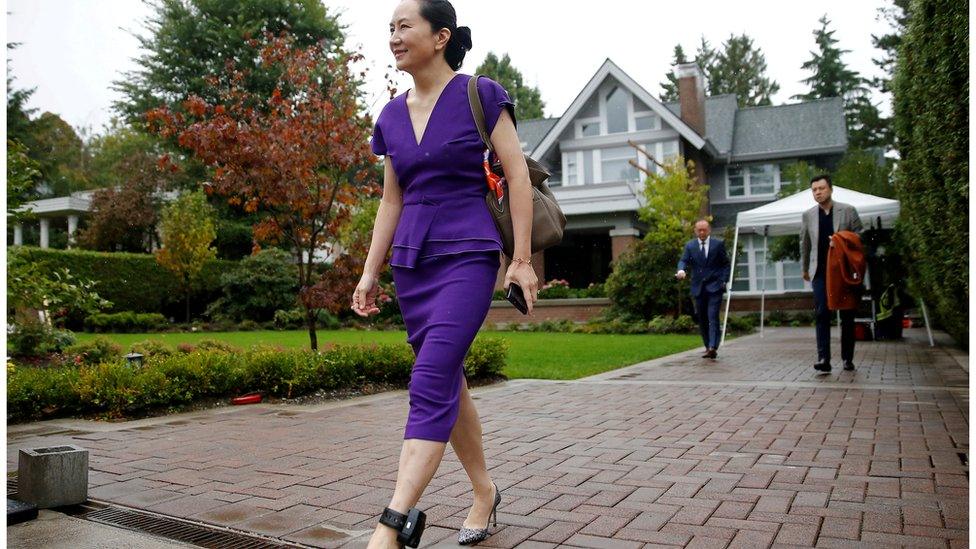
Huawei executive Meng Wanzhou must wear an ankle bracelet monitor as part of her bail conditions
On the anniversary of her own arrest, she published a letter on the Huawei website and on social media thanking her supporters in Canada.
As part of the bail conditions, she was given an electronic ankle bracelet monitoring tag and a curfew, but is allowed to travel around much of Vancouver.
The executive said in her letter that due to her circumstances, she now has time to read and paint.
Those close to Mr Kovrig and Mr Spavor are drawing a contrast between her situation and theirs.
The pair are being held in a detention centre and are allowed only infrequent visits from consular staff.
In April, it was reported that both men were being interrogated for between six to eight hours a day, and were sometimes subject to 24-hour artificial lighting.
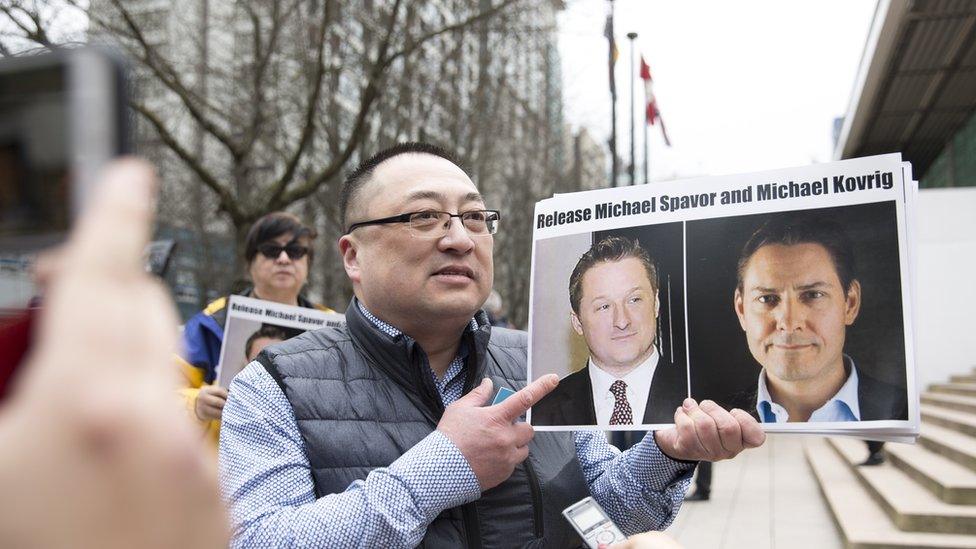
Meng Wanzhou's court appearances have drawn both supporters and protesters
In July, guards reportedly confiscated Mr Kovrig's reading glasses.
What does this mean for the China-Canada relationship?
It has led to a diplomatic and trade row between Canada and China, with China blocking tens millions of dollars of canola exports, as well as until recently, pork products.
Chinese officials have called the Huawei executive's arrest a "serious mistake" and accused Canada of double standards.
China's ambassador to Canada, Cong Peiwu, said this month the release of the Huawei executive was a "precondition" for improved Canada-US relations.
Over the last year, Canadians views on China in general have soured, according to the Pew Research Center.
Their latest Global Attitudes survey found that a majority of Canadians had a negative view of China, external, with 67% of respondents telling the organisation they held an unfavourable view of the Asian nation.
Those negative opinions rose 22 points in the wake of Ms Meng's arrest and the detainment of Mr Kovrig and Mr Spavor, Pew says.
- Published5 September 2019
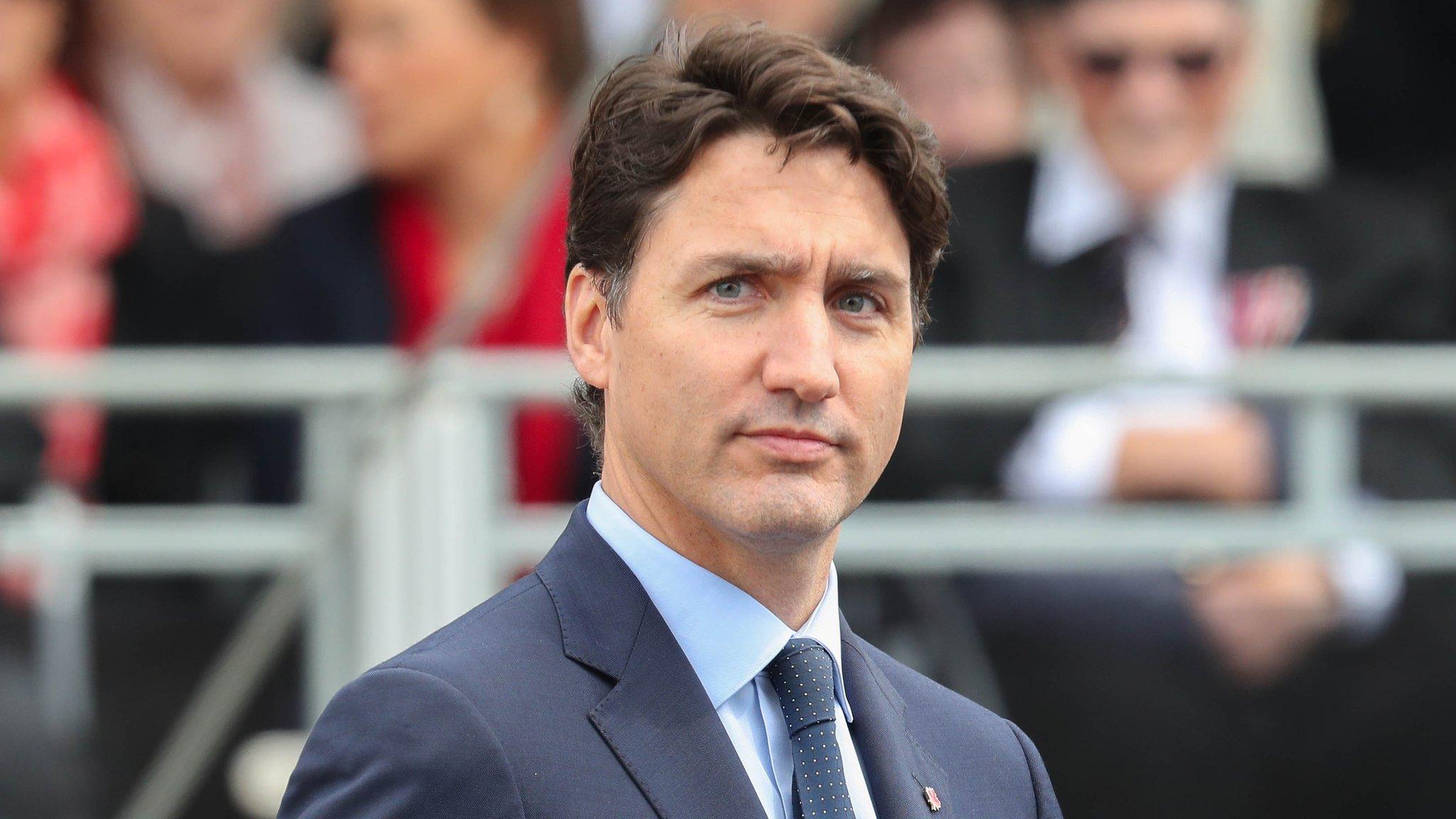
- Published16 May 2019

- Published22 August 2019
